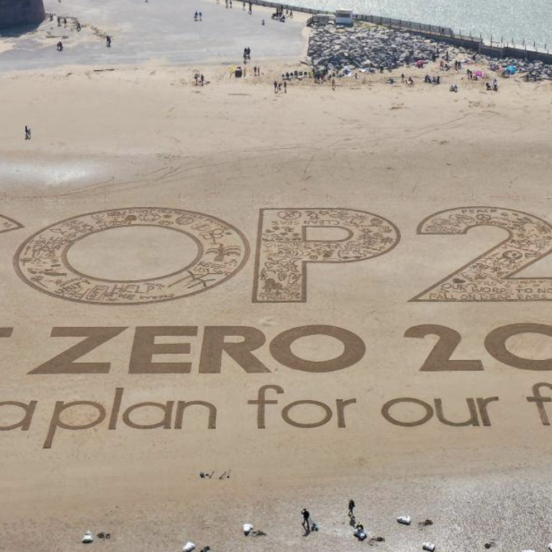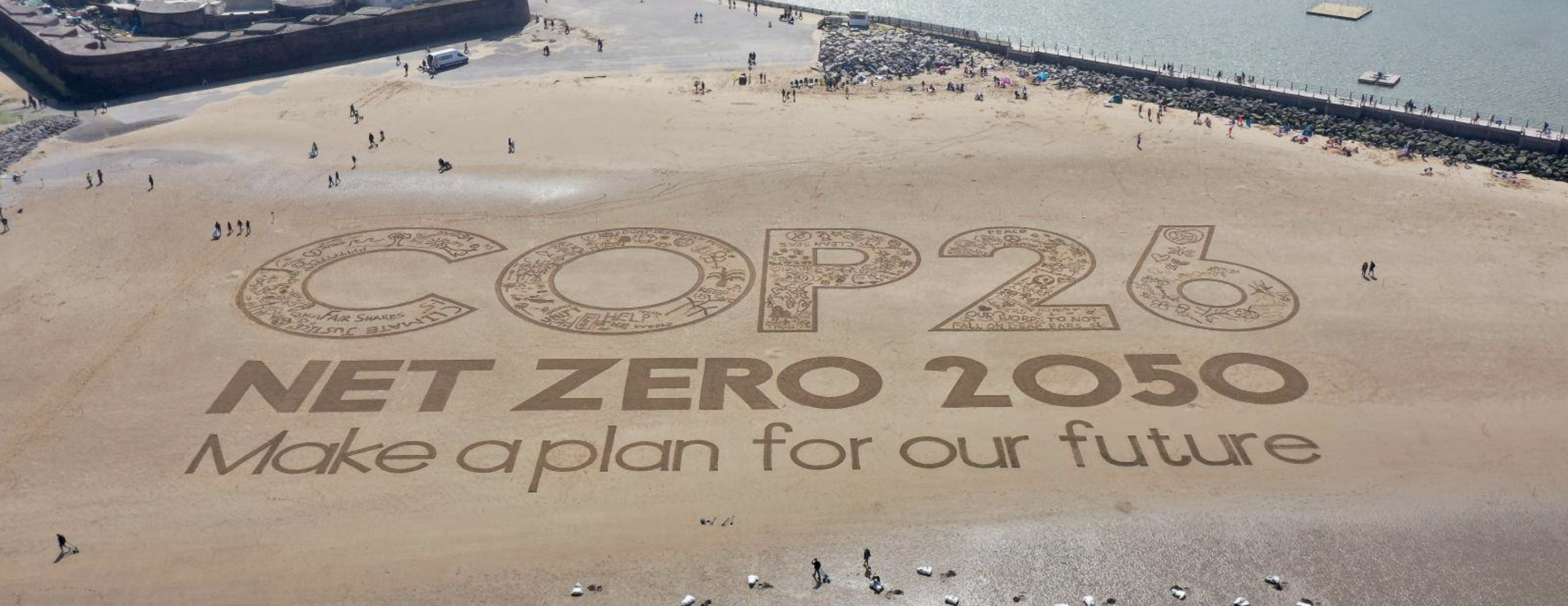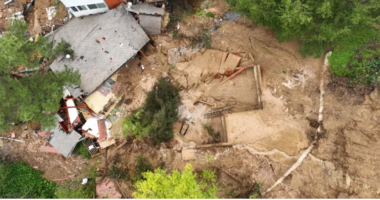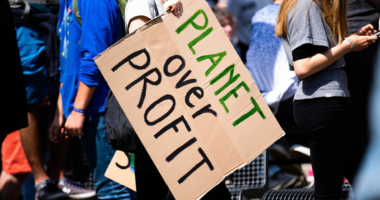Climate, Health and Equity Brief
All Eyes on Glasgow
November 3, 2021

The Climate, Health & Equity Brief is GMMB’s take on the week’s news on the current impacts of climate change. If you haven’t subscribed yet, you can do so by clicking here.
Hot Topic: COP26. World leaders will descend on Glasgow, Scotland this weekend for the 26th UN Climate Change Conference of the Parties (COP26). The two-week summit is a critical arena for building consensus and solidifying the ambitious commitments needed to avert climate catastrophe.
This week’s Brief, like most weeks, shows just how important COP26 is. A new report found that we’re falling short on all 40 monitored indicators of climate progress. Global climate financing must increase to $5 trillion annually by 2030 to sufficiently avert catastrophic warming. And studies continue to show that climate change is already taking a toll on mental and physical health, increasing premature deaths, threatening economic instability, and having a dire effect on developing nations with limited resources.
COP26 is a tremendously important opportunity to focus the world on the steps that are now non-negotiable in order to avert a climate catastrophe. Just a few of the things we’ll be watching closely:
- How many—and which—countries will commit to achieving net-zero emissions by 2050 or sooner, a move experts agree is now required by nearly every country in the world to avert climate disaster
- How the decisions by China and Russia to skip the conference will impact commitments from other nations
- Whether countries will agree to set a ‘floor’ for the price of carbon, which would shift the financial burden for emissions to those responsible and create an incentive to reduce reliance on fossil fuels
- How discord over climate spending in the U.S. Congress will impact President Biden’s ability to persuade other nations to act
- What concrete steps will be taken to reduce methane emissions, which have 80 times more atmospheric warming power in the short-term than CO2
- What progress will be made to move coal-dependent countries toward clean energy, and
- Whether there will be consensus about eliminating subsidies for fossil fuels
The question is not whether these and other decisions made over the next two weeks will have impacts on a planetary level, as that much is certain—but whether humanity will rise to meet the unprecedented challenge before us before it is too late.
— Matt & Traci, GMMB
Politics & Economy
A new report found that worldwide climate financing must increase to $5 trillionannually by 2030 to sufficiently avert catastrophic warming, finding that not a single metric for decarbonization of industry sectors out of 40 monitored are in line with Paris Agreement goals. (Reuters)
President Biden unveiled a streamlined new budget plan, allocating $555 billion for clean energy and climate investments along with other social programs. (The Washington Post)
In an open letter to decision makers at COP26, 91 global CEOs called upon world leaders to eliminate fossil fuel subsidies, slash customs duties on climate-friendly goods and support innovation in technologies that help adapt to the effects of climate change. (The Economic Times)
CEOs of several major oil companies testified before the House Oversight Committee this week, acknowledging their products contribute to climate change yet refusing to stop lobbying against policies designed to reduce emissions. (The New York Times)
Human Health
New data from the Pan American Health Organization revealed that more than 12 million annual deaths worldwide can be attributed to environmental risk factors including warming temperatures, air pollution, wildfires and drought. (CNN)
Despite the majority of U.S. wildfires occurring in the Western States between 2008 and 2016, a new study found that those in Eastern States were disproportionately impacted by drifting smoke, with 75 percent of asthma cases and deaths from smoke pollutants occurring east of the Rocky Mountains in that time frame. (The Washington Post)
Three years after the Camp Fire ravaged Butte County, California, the lingering mental health impacts of the state’s most destructive wildfire continue to plague the community, with nearly all residents reporting that they suffer from PTSD, anxiety, depression, substance abuse, survivor’s guilt and/or grief. (The Washington Post)
A new U.S. Energy Information Administration analysis revealed that climate-fueled extreme weather is pushing aging U.S. electrical infrastructure past its limits, with the average American home enduring more than double the hours without power than it did just five years ago. (The Washington Post)
We are at the verge of the abyss. We must make sure the next step is in the right direction.”
-UN Secretary General António Guterres
Planetary Health
A new UN report released ahead of COP26 found that current climate commitments from world leaders place the world on a path to “catastrophic warming” of 2.7°C (4.9°F), and that developed nations are three years behind on meeting their goal of $100 billion in climate financing to developing countries by 2020. (Bloomberg)
The World Meteorological Organization’s reported that 2020 saw the highest level of atmospheric carbon dioxide in human history, putting the world on track to experience warming far greater than Paris Agreement goals. (Axios)
A new report found that emissions from the plastic industry could be greater than those from coal-fired power plants by the end of this decade, with U.S. plastic production in 2020 responsible for emissions equivalent to as much as 116 average-sized U.S. coal-fired power plants. (Grist)
Equity
A new study found that more than 80 percent of India’s population is highly vulnerable to extreme weather events such as droughts, floods or cyclones, and nearly 40 percent of Indian districts lack a disaster management plan. (The Hindustan Times)
Kicker
Ready for COP26? Check out this roundup of climate podcasts, films and TV shows for facts and inspiration.
The GMMB Climate, Health & Equity Brief would not be possible without the contributions of the larger GMMB California team—Aaron Benavides, Elke Cortes, Stefana Simonetto and Sydney Lykins. Feedback on the Brief is welcome and encouraged and should be sent to CHandEBrief@gmmb.com.






